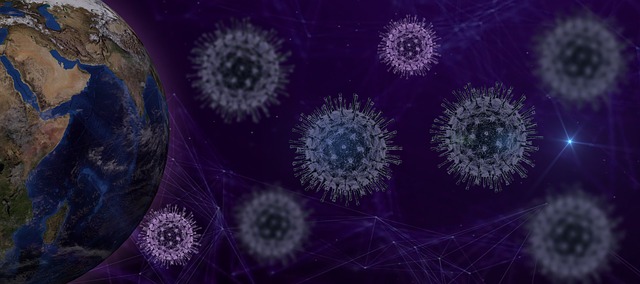Share This Article:

Las Vegas, NV (WorkersCompensation.com) — The 11th annual Nevada Workers' Compensation Educational Conference held at Tuscany Suites and Casino in Las Vegas served as a platform for an insightful presentation by Gary Seale, PhD, LPA, LCDC, Regional Director of Clinical Services at the Centre for Neuro Skills. The conference, sponsored by the Nevada Department of Business and Industry Division of Industrial Relations in cooperation with the International Workers' Compensation Foundation (IWCF), brought together experts from diverse fields, all focusing on the central theme of 'The Human Connection.'
According to the Brain Injury Association of America and the Center for Disease Control, traumatic brain injuries (TBIs) occur alarmingly frequently. A person sustains a TBI every 15-22 seconds, which calculates to approximately 2.5 million incidents yearly. While TBIs represent just a subset of Acquired Brain Injuries (ABIs), it is noteworthy that an estimated 5.3 million Americans live with disabilities stemming from TBIs.
Various causes contribute to ABIs. These include, but are not limited to, strokes, tumors, conditions like encephalitis and meningitis, and even infections like COVID-19. Risk factors like age, lifestyle choices, substance use, and gender can influence susceptibility. Statistics show men are 1.4 times more likely than women to sustain a brain injury. Consequences often manifest as a range of motor, sensory, emotional, and cognitive impairments. Additional medical complications may include sleep disorders and an elevated risk for neurodegenerative diseases like Alzheimer's and Parkinson's.
As the world continues to grapple with the far-reaching implications of the COVID-19 pandemic, Seale emphasized that the ABI population faces added vulnerabilities. "Stay at Home" orders issued nationwide to curtail the spread of the virus have placed these individuals at a heightened risk of regression, emotional isolation, and depressive symptoms. Rehabilitation programs have adapted to the situation by incorporating telerehabilitation technology. Telerehab enables healthcare providers to offer essential therapeutic services while minimizing the risk of virus transmission to this vulnerable population.
Though primarily categorized as a respiratory pathogen, the SARS-CoV-2 virus causes COVID-19 and has many neurological impacts, ranging from impaired concentration and sensory disturbances to mood disorders like anxiety and depression. The colloquially known as 'brain fog' condition has also become a significant concern.
The figures provide a sobering reality check. As of June 15, 2022, the U.S. had reported a staggering 85 million cases of COVID-19. An estimated 10%-20% of these patients, translating to 8-16 million people, develop symptoms that persist long after the acute phase of the virus has passed. Among those unfortunate enough to develop Long-COVID, also known as Post-Acute Sequelae of SARS-CoV-2 infection (PASC), an overwhelming 80% report experiencing cognitive deficits. PASC was recognized as a disability under the Americans with Disabilities Act (ADA) as of July 2021, further emphasizing the urgency of effectively understanding and treating this condition.
Who is most likely to develop Long-COVID? The risk factors are surprisingly varied. While severe cases of COVID-19—especially those requiring ICU treatment—significantly elevate the risk, those with mild symptoms are by no means exempt. Research has noted a higher likelihood among individuals with pre-existing health conditions, those who are unvaccinated, and even individuals younger than 50 who had no prior health concerns. Intriguingly, data shows a skew towards the female gender.
Seale provided a detailed explanation of how the virus infiltrates the brain. Primarily entering via the nasal passages and targeting the olfactory bulb, the virus can travel along neural pathways to other brain areas. An inflammatory response that involves cytokines is often triggered, leading to a disruption in communication between neurons. This chain of events can result in a variety of cognitive impairments.
Seale underscored the importance of adopting an interdisciplinary approach to treatment to combat these neurological ramifications. This approach would incorporate a team of healthcare professionals specializing in various fields, such as physical therapy, occupational therapy, psychological counseling, and nursing. "An individualized approach is crucial, given the varying duration and etiology of symptoms," Seale remarked.
Treatment modalities may include strengthening exercises, balance and gait training, cognitive-behavioral therapy, and even trauma-based therapies such as Eye Movement Desensitization and Reprocessing (EMDR). Complementary approaches such as mindfulness practices, positive psychology, and resilience training are valuable elements of a comprehensive, holistic treatment strategy.
As society ventures further into this so-called 'new normal,' understanding and addressing the often-overlooked neurological consequences of COVID-19 will be increasingly critical. An interdisciplinary and highly individualized treatment strategy offers hope for the millions struggling with Long-COVID's lasting neurological impacts. The insights shared by Gary Seale serve as a practical and comprehensive guide that could significantly alter the trajectory of treatment for this devastating condition.
AI california case file caselaw case management case management focus claims compensability compliance compliance corner courts covid do you know the rule employers exclusive remedy florida glossary check Healthcare hr homeroom insurance insurers iowa kentucky leadership NCCI new jersey new york ohio pennsylvania roadmap Safety safety at work state info tech technology violence WDYT west virginia what do you think women's history women's history month workers' comp 101 workers' recovery Workplace Safety Workplace Violence
Read Also
- Dec 27, 2025
- Frank Ferreri
- Dec 27, 2025
- Frank Ferreri
About The Author
About The Author
- WorkersCompensation.com
More by This Author
- Dec 19, 2025
- WorkersCompensation.com
- Dec 05, 2025
- WorkersCompensation.com
- Dec 01, 2025
- WorkersCompensation.com
Read More
- Dec 27, 2025
- Frank Ferreri
- Dec 27, 2025
- Frank Ferreri
- Dec 24, 2025
- Chris Parker
- Dec 24, 2025
- Frank Ferreri
- Dec 23, 2025
- Chris Parker
- Dec 21, 2025
- Frank Ferreri




